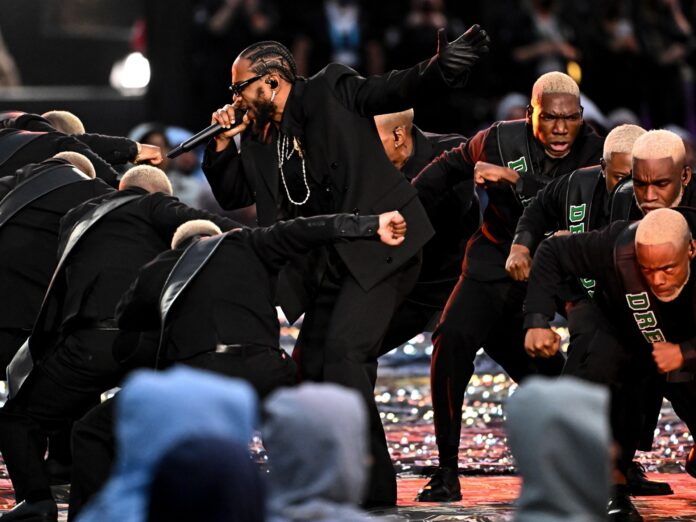What role has hip-hop played in activism?
From the 1980s, hip-hop has essentially enabled marginalised voices to break through to the mainstream.
The song Girl (Cocaine) That’s Your Life, released by Too Short in 1985, explores the gritty reality of a woman entrenched in street culture, examining her daily struggles, difficult decisions, and the inevitable repercussions of her chosen lifestyle.
Since age thirteen what have I seen
A lotto of base heads straight coke fiends
Snorting, puffing, that’s the life
But it’s all over when you hit that pipe
“We [the Black community in America] were getting these first-person narratives from voices that were not in the mainstream. The voices of the unheard were speaking through rap. Instead of rioting they now had a platform to express themselves,” explained Arnold.
In 1987, New York hip-hop rap group Public Enemy, known for raising political issues, media manipulation, and systemic racism in their lyrics, released their debut album, Yo! Bum Rush the Show. The group’s subsequent album, It Takes a Nation of Millions to Hold Us Back (1988) established its legacy in both musical achievement and social advocacy.
In Compton, California, N.W.A (Niggaz With an Attitude) release of F**k the Police, which featured on its 1988 album Straight Outta Compton, addressed systemic issues of police brutality and racial profiling.
F–k the police comin’ straight from the underground
A Young nigga got it bad ’cause I’m brown
And not the other colour so police think
They have the authority to kill a minority
The lyrics prompted widespread outrage among conservatives, culminating in the FBI sending a formal letter of condemnation to N.W.A’s record label regarding the song’s perceived anti-law enforcement message.
Even non-political rappers began to incorporate political messages into their songs, said Arnold, demonstrating how deeply political discourse had permeated hip-hop culture. This influence was so pervasive that artists with no explicit ideological stance found themselves engaging with political themes.
“There are only a few artists and groups who are political ideologues. Everything else is occasional political commentary,” said Arnold. “In terms of political ideology, you have Public Enemy, Paris, the Coup, maybe Boogie Down Productions, in the late 80s, early 90s. In the early 2000s, you have Dead Prez and Immortal Technique. On top of that, you have Ice Cube developing a political consciousness that’s evident on his first and second solo albums but then fades into the background on subsequent albums.”
Which major incidents have inspired political hip-hop lyrics?
One was the 1991 acquittal of four White Los Angeles police officers who had been videotaped severely beating Rodney King, a Black man. The verdict led to six-day-long riots in Los Angeles, resulting in more than 60 deaths, 12,000 arrests and almost $1bn in property damage. The incident inspired Ice Cube to write the song We Had to Tear This Mothaf**a Up, which was released on his 1992 album, The Predator:
Not guilty, the filthy, devils tried to kill me
When the news get to the hood the ni**as will be
Hotter than cayenne pepper, cuss, bust
Kickin up dust is a must
His former N.W.A. rap mate, Dr Dre, also released a response to the LA riots in his 1992 album The Chronic, The Day the Nig**az Took Over:
Mi not out for peace and mi not Rodney King
De gun goes click, mi gun goes bang
Dem riot in Compton and dem riot in Long Beach
Dem riot in L.A. ’cause dem no really wanna see
Niggas start to loot and police start to shoot
The first line explicitly rejects calls for peace and expresses the frustrations of the Black community. King himself took a more conciliatory tone during a news conference on May 1, 1992, during the riots. Hoping to quell the violence, he famously stated: “Can’t we all just get along?”
“Police brutality is a theme. It’s not just one thing, it’s not just: Oh, Rodney King got beat up. All of these people got beat up. They’re still getting beat up. And it didn’t end in 1992,” said Arnold.
Another incident which inspired lyrics was the fatal shooting of Trayvon Martin by George Zimmerman, a neighbourhood watch volunteer in Sanford, Florida, in February 2012. The following year, Zimmerman was acquitted.
The shooting ignited national outrage, raising intense discussions about racial profiling, gun control legislation, and Florida’s controversial “Stand Your Ground” law.
Hip-hop rapper Plies, who co-founded the independent label Big Gates Records, released We Are Trayvon in 2012, promoting the Trayvon Martin Foundation started by Trayvon’s parents with the goal of raising awareness about gun violence.
I never thought that wearing no hoodie, could cost you your life
And I never thought you could just kill somebody and go out the same night. (same night)
Every dog that you see that bark, don’t mean that he bite
And everything that’s Black ain’t even, everything that’s pure ain’t white
In 2014, 17-year-old Laquan McDonald was fatally shot by Chicago Police Officer Jason Van Dyke. Police dash-cam footage later emerged, revealing that McDonald had been walking away from Van Dyke when the officer fired 16 shots at the teenager. The withholding of this video evidence triggered huge demonstrations and public outcry.
Two years after the incident, rapper Vic Mensa released 16 Shots:
He never had a chance, and we all know it’s cause he Black
Shot ’em sixteen times, how f*cked up is that?
Now, the police superintendent wanna double back
Cops speeding up to the block like a running back
Officer Van Dyke was found guilty of second-degree murder and 16 counts of aggravated battery in 2018 but was released in 2022 after serving three years of his sentence.
In 2015, Sandra Bland, a 28-year-old African American woman, was pulled over by law enforcement in Prairie View, Texas. What began as a routine traffic stop for failing to signal a lane change quickly spiralled into a confrontation that resulted in her arrest on charges of allegedly assaulting a police officer.
Three days later, officials discovered her lifeless body in her cell at Waller County Jail. Although authorities determined she died by suicide through hanging, her death would prompt national controversy.
Over the years, several artists wrote protest songs about the incident, including American singer Janelle Monae, with Say Her Name in 2015, a 17-minute song listing names of Black women who lost their lives due to racial violence or in encounters with law enforcement.
Rapper Joyner Lucas wrote in Devil’s Work in 2019:
Ain’t no justice for Sandra Bland, we up like the ceiling fan
Lord, if You listenin’, I’m just lookin’ for a hand to hand

